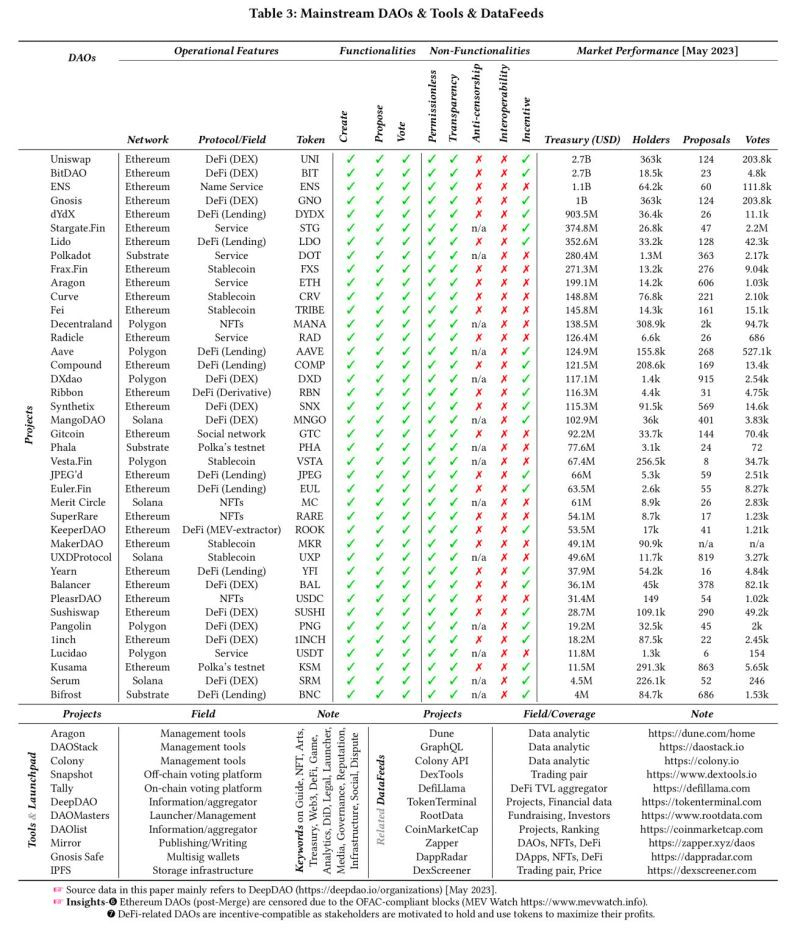Over 581 DAO projects, analyzed 16,246 proposals over 5 years.
The DAO paper covered all the projects using the DAO/governance platform called Snapshot, covering over 95% of in-the-wild DAO projects (over 11,000 spaces).
I've found 4 key findings in this "The DAO Dilemma" 👇
• The Centralization Paradox
The data paints a picture of impressive growth - 581 DAOs, over 16,000 proposals, spanning 5 years. The member distribution follows the Pareto principle.
A small minority holds most of the power.
I'm left wondering: Are we just recreating traditional power structures in a blockchain wrapper? The Gini coefficient of token distribution within DAOs would be a telling metric here.
• The Technical Ticking Time Bomb
The lack of IPFS upgrades sends shivers down my spine. It's a classic case of technical debt that could implode as DAOs scale. We're talking potential data loss, skyrocketing storage costs, and crippled efficiency.
Here's a thought experiment: What happens when a critical proposal's data becomes irretrievable due to outdated IPFS links? The consequences could be dire.
• The Democracy-Efficiency Tug-of-War
The study shows a wide range of voting contexts - from budgets to hiring decisions. It's democracy in action, right? Not so fast. I'm seeing two massive red flags:
a) Voter apathy: Low turnout plagues many decisions.
b) Token-weighted voting: A few whales can sway entire ecosystems.
This creates a governance paradox. On one hand, we have the ideal of decentralized decision-making. On the other, we're facing the harsh reality of consolidated power and disengaged communities.
• The Token Dilemma
Here's where it gets really interesting. The majority of DAOs are using self-issued tokens rather than established cryptocurrencies like USDT or ETH. This raises serious questions about incentive structures and long-term viability.
Are we witnessing the birth of robust governance systems, or just sophisticated token pumping schemes? The cynic in me leans towards the latter, but I'm open to being proven wrong.
• The Path Forward
Despite these challenges, I remain cautiously optimistic about DAOs.
Here's what I believe needs to happen:
• Implement quadratic voting or other mechanisms to balance influence.
• Prioritize technical infrastructure upgrades, especially around data storage.
• Develop stronger incentives for consistent participation in governance.
• Encourage the use of more stable value tokens for governance.
This study has reinforced my belief that DAOs are at a critical juncture. The promise of decentralized governance is immense, but so are the hurdles.
What's your take?
Are DAOs the future of organization, or are we witnessing a grand experiment that's doomed to recreate the systems it aimed to replace?




